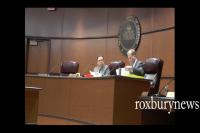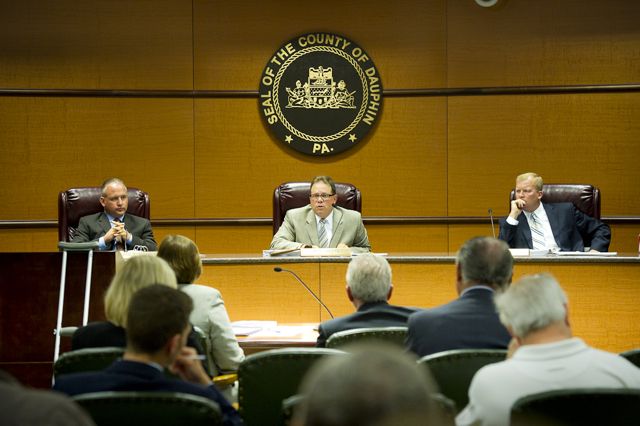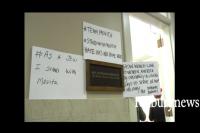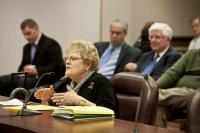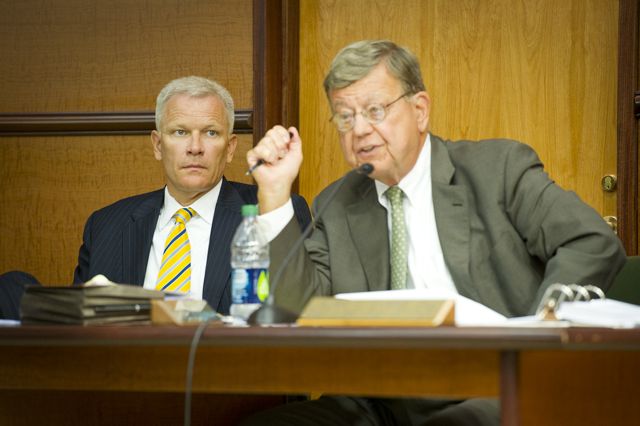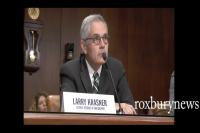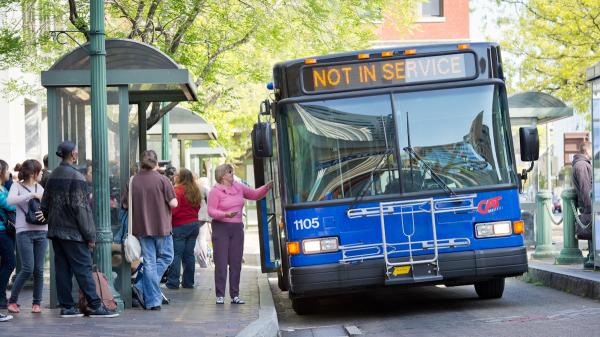Discussion of CAT Bus service
Chief Clerk Chad Saylor.
Our friends across the river have brought it up in a public way.
_________________________
Press release from Cumberland County Commissioners March 28, 2017.
Cumberland County Commissioners Cite Mounting Cost of CAT Mismanagement
Cumberland County Commissioners stated today that they will bring the issue of extravagant executive compensation to the attention of the Capital Area Transit Board of Directors at the upcoming Board meeting on Thursday, March 30, in Carlisle. Per County Board Chairman Vince DiFilippo, “CAT is funded by taxpayers to provide transit service, not to provide excessive benefits to its senior managers. It is already known that CAT’s cost structure is far higher than any other transit agency in the area. Rewarding poor performance of senior managers as they leave undermines the notion of accountability to our taxpayers.”
The Commissioners made the statement as details of former CAT General Manager William Jones’ severance package recently were revealed after approval by majority vote of the CAT Board of Directors. Jones resigned from the position in February after a seven year term during which CAT’s finances and services deteriorated significantly.
The details show that the severance package is, in a word, generous; totaling over $50,000. Jones will be provided with 4 months of salary – about $36,000 - beyond any unused leave he is entitled to; and 2 years of health coverage; worth about $15,000. If Jones obtains other employment within the 2 years, he will be paid the value of the remaining premiums covered by CAT. As part of the settlement, CAT agreed not to contest any unemployment compensation claims made by Jones.
On top of the severance, Jones was a member in two defined benefit pension plans at CAT: one that all CAT staff receives; and a second one for a small number of CAT’s top executives that, unlike the general pension, requires no employee contributions. Under the standard pension, one can receive up to 56% of one’s adjusted salary. Under the executive pension, one can receive an addition 40% of one’s salary on top of the base pension. That’s 96% of one’s final salary. The extent of Jones actual payout from both pensions will be actuarially determined in accordance with the terms of the plans and will be, based in part, of course, on the extent to which he is vested. It is unlikely that Jones, due to his relatively short tenure, would receive the full 96% of his salary.
Not a bad reward for poor performance.
But the most disturbing part of the package is a provision that if CAT fails to fund a vested benefit including pension he can still make a claim, which CAT would have to pay out of its operating funds. Last week, Cumberland County Commissioners requested that Pennsylvania’s Auditor General investigate the legality and ethics of CAT’s second executive pension. In response, the CAT Board Director Eric Bugaile released a statement that it had “frozen” the second pension. It should be noted, however, that no such official action of the CAT Board has been taken on the issue.
If the second pension were terminated for whatever reason, Jones’ severance provision would create a significant financial obligation for CAT that would have to be paid out of tax dollars. CAT would be in the position of having to make payments “in lieu of” the executive pension annuity, to Jones and others, until their passing. There are currently nine individuals, in addition to Jones, eligible for the second executive pension.
With its existing exposure on the second pension, one would expect CAT management to formally avoid increasing its exposure. Press releases aside, this does not seem to be the case. No official action has actually been taken by the CAT Board to “freeze” the executive pension plan at CAT. The third party administrator of the plan has not been notified of any official action to freeze the plan. Nor has the plan document been amended to reflect that it is frozen.
As part of efforts to obtain relevant documentation about the executive pension plan, Jones in January 2017 stated he recently located documentation from 2012, approved by CAT Board Chair Eric Bugaile admitting Jones and another CAT executive into the management pension plan. Such documentation was not provided in response to an initial Right to Know request by CAT Board members. A follow-up Right to Know Request has been sent to CAT to obtain this, and other missing documentation regarding the management of the executive pension plan.
Further research of public records failed to uncover any mention in the 2012 CAT Board minutes of an official action by the CAT Board approving adding the two senior executives, including Jones, to the plan. This raises the questions of whether Bugaile approved the additions to the executive pension plan unilaterally; and that if he were so disposed, might he do so again?
________________________________
Archive video November 14, 2013
Dauphin County Gaming advisory board.
Request for $150,000
William Jones General Manager CAT Bus
Photo file.


